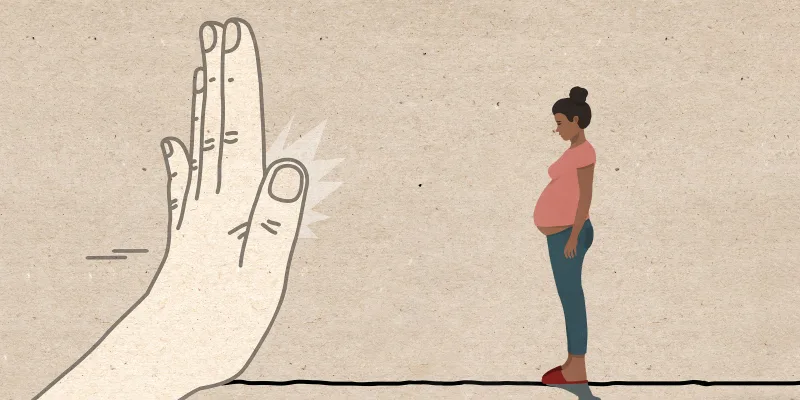He was 5 feet, 5 inches tall, sporting black leather pants and a matching vest. He sat erect on the examination table, his hair stylishly coiffed and his arms crossed, as he huffed with an air of indignation. After briefly locking eyes, I focused on his chest to make sure he was breathing. He appeared more like the statue of a monarch than a patient. In a word, he was fierce. This was his third visit to my infectious diseases clinic over the past several months. When I saw his name on my list of patients for the day, I sighed and prepared myself mentally. Mr. B was a person living with HIV. He had not taken any antiretroviral therapy over the past several years and had been doing “just fine.” Our pattern had been a cursory greeting followed by a verbal pingpong match on the question of the importance (or lack thereof) of antiretroviral therapy. Despite multiple conversations discussing the natural history of HIV and the myriad negative consequences of not taking HIV medications, the major one being death, Mr. B continued to remain non-compliant.
I knocked on the door, waited for a few seconds, and then walked into the room with an internal medicine resident who was rotating through the clinic.
“Good morning, Mr. B,” I said.
There was a pregnant pause, followed by a slow, deliberate “Mmmhmmmmm.” When I asked him if he had started taking his medication, our battle picked up where it had left off during our last visit. “No,” he replied.
But this time, I was ready. I stood my ground, figuratively and literally, with my feet firmly planted on the linoleum floor, arguing that he was putting himself at risk for opportunistic infections and describing the gory, painful details of each and every one, including death. I was on a roll and knew there was no way he was not going to be convinced, or so I thought.
It became a bit heated, and in the midst of our duel, he abruptly raised his hand and declared, “And by the way, you have split ends.”
Being the ever dignified and erudite physician that I am, I immediately retorted, “No, I don’t!”
“Yes, you do,” he said. “I’m a stylist, I notice these things.”
There was an awkward pause, as I thought about this for a bit longer. “I do not have split ends, Mr. B,” I stammered, mindful of my resident who was now eyeing the back of my head.
He shrugged and said, “Turn around.”
I reluctantly obeyed, and Mr. B asked my resident to stand by him as he gave her a tutorial on the ABCs of bad hair, my mangy mop serving as the example. My resident, ever eager to learn, paid close attention and responded, “Oh yeah!” as Mr. B identified split end after split end.
I was mortified, but I maintained my composure and thought about how I would reply. Do I walk away? Do I get angry? Do I politely say, Mr. B, this is not about my hair, it’s about you not taking your medications, and if you continue along this path, you’re going to die?
After some thought, I said, “OK, Mr. B. Let’s make a deal. I will clean up my act with my hair if you take your medications.”
He thought about it for a minute and then said, “OK.” We shook on it and scheduled our next appointment.
Over the next several months, our appointments did not start in the typical manner. There were no casual “good mornings” or generic greetings. Instead, after prepping my student or resident about our unique situation, I knocked on the door, walked into the room, and nodded once in his direction. He nodded back, and, after a few seconds, I walked up to him and turned around. Then he carefully inspected my hair and gave me my hair grade — which, by the way, was horrendous in the beginning — and then I would give him his test results, which indicated a high HIV viral load, initially. Over time, as my hair began to improve, I noticed that my patient’s HIV viral load began to drop, suggesting that he was taking his medications. More importantly, I got to know my patient. He loved being a stylist and was a good one, though he had to change shops due to hostile coworkers. He had a good relationship with his partner, who took good care of him and was supportive of his career. I found out he used to have a beloved daughter who died in an accident when she was very young, an incident that left him shattered and with a wound that still felt fresh.
During one of our later visits, he looked me up and down and plainly stated, “You’re pregnant.”
“Excuse me, Mr. B?”
“You’re pregnant. I saw in my dream that you were expecting twins.”
I paused for a moment. “Mr. B, I have my two children and you. The last thing I need is twins!” We erupted into a fit of laughter, his partner having to catch him from falling off the exam table.
I will never forget the day Mr. B finally gave me a passing grade on my hair. I excitedly turned around and gave him a high-five, ecstatic that I had finally done it.
“Great! Now what’s that zit on your face?” he said.
I can now say that my hair finally meets Mr. B’s high standards, and his HIV is well-controlled. Some time later, I paid him a surprise visit at his salon, where he treated me like royalty, giving me the best haircut I have ever had.
“Just remember that, if you move, I’m moving with you,” he said softly, as he snipped away my split ends. I couldn’t reply, as I was too busy holding back my tears.
How have patient encounters shaped your approach to medicine? Share your experience in the comment section below.
Dr. Prakash is an associate professor and member of the infectious diseases faculty at Southern Illinois University School of Medicine. She serves as Vice Chair for Clinical Affairs in the Department of Medicine, Associate Program Director for the Internal Medicine Residency Program, and Director of SIU Medicine's Alliance for Women in Medicine and Science.







